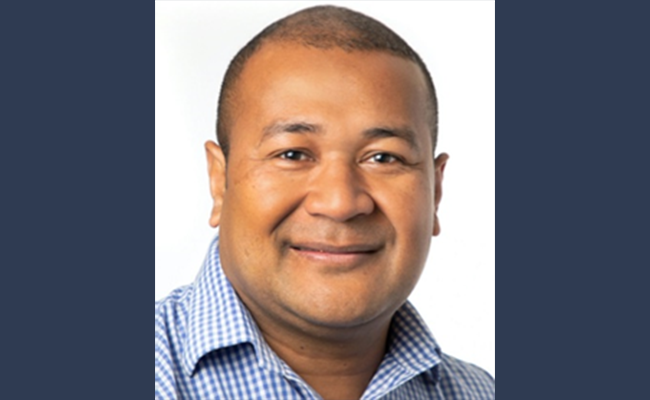
PhD candidate Sakiusa Baleivanualala.
Over the course of 2022, the Department of Microbiology and Immunology has been celebrating the research endeavours and achievements of its current PhD candidates via a series titled 'Members of Microbiology'.
The series has looked into the research topics of 11 students, ranging from agricultural microbiomes through to minimising health inequalities for indigenous groups. The Department is proud to see how far these candidates have come and how intentional they have been in chasing their dreams.
The following story, on Sakiusa Baleivanualala, is the final in the series. See below this story for links to all of the other 'Members of Microbiology'.
When the pandemic threatened PhD candidate Saki Baleivanualala's planned research in Fiji on antimicrobial resistance, the support he got to make sudden changes revealed the values of his home country are also flourishing in New Zealand.
Not long after he arrived in Dunedin to do his postgraduate research in the Department of Microbiology and Immunology, the COVID-19 pandemic hit, followed by the daunting task of entirely restructuring his research, but communities at our University and in Fiji swung into action.
“I believe, challenges and hardship are part of anybody's journey towards success. The COVID-19 pandemic challenged everyone in their own way and for me this meant becoming more resilient because I would not be able to return to Fiji to see my family there or conduct the research I was supposed to do there,” Baleivanualala says.
“My work objectives and timeline had to shift so that I could achieve the set goals and I am so very grateful to for the support provided by the University of Otago and the researchers in Fiji who have been playing their part.
“Additionally, I was also fortunate enough to work alongside other Medical Laboratory Scientists at the Southern Community Laboratories in Dunedin hospital as part of the COVID-19 response team which contributed greatly to my growth.
“Everyone's support and understanding during this time reminded me of the Fijian values “veilomani” and “veirogorogoci” which respectively mean loving one another and collaborating in a considerate manner.”
Reminiscing about all the good things that have happened since he first arrived in Dunedin and started “wearing a warm puffer jacket all-year round, Baleivanualala also thanked Associate Professor James Ussher and Professor John Crump for their support.
He considers himself blessed to be doing researching that matters not only to Fijians but to the wider Pacific community as well.
His research on AMR centres around the World Health Organisation-listed critical pathogens known as carbapenem resistant Acinetobacter baumannii, Enterobacterales and Pseudomonas aeruginosa because there is little information about their transmission in Fiji, despite individual reports of outbreaks from hospitals across the island nation.
So, Baleivanualala is using molecular epidemiology to characterise the phylogenetic relationship between these critical pathogens in Fiji's three major hospitals.
“This research includes whole genome sequencing and integrating my genomic data with clinical epidemiological data to determine the burden of these critical pathogens, a challenging task when a pandemic is separating you from the place and people you are researching,” Baleivanualala says.
“Antimicrobial resistance is a global health problem that is estimated to account for 10 million deaths in the next three decades if not taken seriously and, while working in the three major hospitals in Fiji, I got to witness first-hand the increasing number of patients infected with these types of infections.”
He hopes that his research will play a role in protecting Fiji, other neighbouring Pacific Island countries, from these critical pathogens by assisting and shaping the health policies of the country
“I must also not forget my “vuvale” or “whanau” for their support and prayers,” Baleivanualala says.
“Malo valevu [thank you very much] to them for their unwavering support and the University of Otago for the opportunity.”
Links to the full stories are provided below:
Edition One: Cecilia Wang
Edition Two: Emma Voss
Edition Three: Cara Adolph
Edition Four: Sharon Iose
Edition Five: Bennett Henzeler
Edition Six: Callum August
Edition Seven: Olivia Paxie
Edition Eight: Francesca Hills
Edition Nine: Lupeoletalaleleiamaima Isaia
Edition Ten: Brad Devery
- Kōrero by the School of Biomedical Sciences Communications Adviser, Kelsey Schutte.